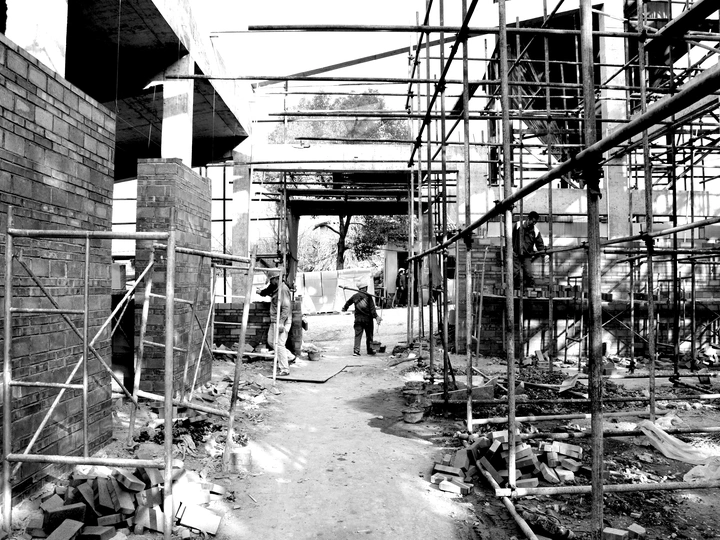Construction Ethnographies of Rural Agency

Giulia Montanaro is a Ph.D. candidate in “Architecture. History and Project” at Politecnico di Torino, with a joint program at Tsinghua University in Beijing. Her research focuses on construction processes and architectural practices in rural contexts, exploring how architects contribute to the provision of common/public space. Her doctoral thesis investigates the transformation of an abandoned kaolin factory into a community center in Zhaoshan Village, China, using ethnographic methods and actor-network theory to map socio-technical dynamics in rural revitalization.
Giulia’s academic journey includes a double master's degree in Building Engineering and Architecture at the University of Pavia and in Architecture at Tongji University in Shanghai. She has been actively involved in teaching activities at Politecnico di Torino, supporting courses on sustainable architecture and urban design. She also took part in workshops and fieldwork focused on self-construction, adaptive reuse, and community spaces in rural and marginal areas across Europe and Asia.
Her academic work has been presented at international conferences such as UIA World Congress, Architecture Across Boundaries (AAB), and AISU, and published in peer-reviewed journals and collective volumes (Springer, AISU, The Modernist, Tracce Urbane). Her current research expands the investigation from China to Europe, aiming to map rural architectural agency through comparative case studies. She advocates for a redefinition of architectural practice in rural areas—not as isolated design acts, but as embedded processes within wider ecological, social, and political systems. In parallel, Giulia is engaged in artistic research. She co-leads Project Mycelium, an interdisciplinary initiative exploring community, territory, and memory through performative practices and ephemeral spatial installations. This work bridges architecture and art, reinforcing her commitment to collective and place-based approaches to design.
This research proposal directly from my doctoral thesis, "Questioning Construction Processes of 公共 Space: Architectural Agency in the Provision of Public/Common Space for Rural Revitalization in China". The dissertation focused on a single case—the transformation of an abandoned factory into a community center in Zhaoshan Village, Hubei Province—and used ethnographic and socio-technical methodologies to explore the entangled processes behind rural "public" architecture.
Using the same methodological framework—based on architectural ethnography, process mapping, and actor-network theory—I propose to examine a series of architectural interventions in rural European contexts. The goal is not to evaluate their design as finished objects but to trace and understand the forms of agency architects perform during construction processes: as mediators, negotiators, facilitators, or local advocates.
The project will develop a collection of situated case studies that document how architects engage with rural transformation in context-specific ways. These cases will be selected to reflect diverse geographies across Europe. The intention is to make visible the hidden processes, power relations, material negotiations, and socio-political entanglements that shape the making of rural space today.
The resulting collection will serve as a research atlas or archive-in-progress—a tool for understanding not what rural architecture looks like, but how it is made, and what kinds of practices, relationships, and values architects bring to these complex settings.
At its core, the project argues for a redefinition of architectural practice in rural contexts—not as isolated acts of authorship, but as embedded processes within broader ecological, economic, and political systems. This proposal seeks to contribute to a broader conversation about spatial justice, the rural condition, and the potential for architects to reclaim agency through situated, process-based practices.